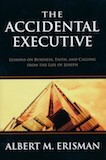Star Trek and the Image of God
Blog / Produced by The High Calling
Two behemoths rule the world of sci-fi: Star Wars and Star Trek. The two franchises have spun off movies, books, toys, and conventions. They've made piles of money, and dominated the pop cultural imagination. And they still manage to explore what it means to be human.
In many ways, these stories ask the same question theologians have asked for centuries: "What does it mean that humanity is fallen and yet still made in the image of God?"
Fans of both franchises will tell you Star Wars and Star Trek explore different sides of this question. In the original trilogy, Star Wars built a warm, pulsing, "lived-in" world that explored the emotions of humanity. Star Trek raised "loftier" questions and explored the world of human ideas.
The two maintained separate orbits, until this spring when George Lucas sold the Star Wars franchise to Disney who tapped J.J. Abrams as the director of Episode 7, the first of a new Star Wars trilogy. The Geek world’s collective brain froze from too much excitement. Why? Because Abrams is already in charge of Star Trek, having re-launched a successful re-imagining of that franchise.
In other words, if there is one person to do it, it’s Abrams.
Abrams' past science-fiction efforts have engaged both sides of the Image of God question—emotions and intellect. For example, in his movie Super 8 he explored the suffering and beauty of childhood, never offering pat answers, but allowing us to meditate on the questions.
In his latest installment, Star Trek: Into Darkness, released this week, Abrams invites the audience to ask, "How should we react when threatened or wronged? Should we respond with revenge, or with justice tempered by understanding?" Here, he centers the story on Star Trek mainstays, Captain James T. Kirk (Chris Pine) and Kirk's second-in-command, the Vulcan Spock (Zachary Quinto). Both are called on to meet with other officers after a rogue Star Fleet officer, John Harrison (played by the amazing Benedict Cumberbatch), commits a terrorist attack.
Why would Harrison want revenge against seemingly honorable people? How could anyone hate Star Fleet, an organization that protects civilization and promotes understanding through exploration of the galaxy? These questions drive the plot.
Yet we know that even when places are at their most idealistic and beautiful, whether home, vacation, or work—people can compromise their beliefs. And when a few unfaithfuls neglect to do what they should, they can poison the entire culture of an organization. As Kirk and Spock learn about Star Fleet commanders, their notions of faithfulness are challenged. A clear-cut case of bringing a criminal to justice turns into a complex, moral dilemma, and the audience gets a glimpse of how human justice can twist into revenge.
Alongside the main characters' wrestling through lofty issues, Abrams still gives us friendship, humor, and genuine sadness, indicating his future worth to the Star Wars franchise, too. For now, he is indulging his inner "Trekkie," exploring philosophical questions of justice and revenge with spine-tingling results. Not an easy tightrope to walk for any storyteller.
In the end, Star Trek: Into Darkness reminds me of why Abrams is one of the best science-fiction storytellers of our time. He shines a light on our broken humanity and reveals aspects of the image of God to us, while we eat our popcorn.
Post written by Jonathan Ryan. Jonathan is the author of the upcoming Urban Fantasy novel, 3 Gates of the Dead. He can be found on Twitter at @authorjryan. Images courtesy of Star Trek: Into the Darkness.





